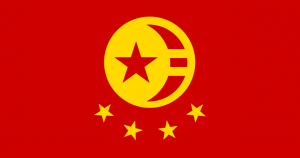Language/Yue-chinese/Grammar/Conjunctions
Conjunctions are an essential part of any language because they connect words, phrases, and clauses. In Yue Chinese, conjunctions play a crucial role in forming complex sentences and conveying a variety of meanings. In this lesson, you will learn about the different conjunctions in Yue Chinese and how to use them in sentences and dialogues.
Once you've mastered this lesson, take a look at these related pages: Verbs Action and Stative & Expressing the Best and the Worst.
Coordinating Conjunctions
Coordinating conjunctions are used to connect two or more words, phrases, or clauses of equal rank. The most common coordinating conjunctions in Yue Chinese are "和" (hè) meaning "and," "或" (huò) meaning "or," and "但" (dàn) meaning "but." Here are some examples:
| Yue Chinese | Pronunciation | English |
|---|---|---|
| 我喜歡紅茶和咖啡 | Ngóh hĕi fān hùhng chàh hòh gā fēi | I like both tea and coffee |
| 你要喝牛奶或者果汁? | Léih yiu yuhk ngàuh náai waak tīk gwó jāp? | Do you want to drink milk or juice? |
| 我不會游泳,但是我會滑冰。 | Ngóh bāt wúi yàuh wàhng, dàn sih ngóh wúi wut pìng. | I can't swim, but I can ice skate. |
Subordinating Conjunctions
Subordinating conjunctions are used to connect a dependent clause to an independent clause. The most common subordinating conjunctions in Yue Chinese are "因為" (yīn wàih) meaning "because," "所以" (sóh yí) meaning "so," "如果" (yùh gwoh) meaning "if," and "雖然" (sēui yīn) meaning "although."
Here are some examples:
| Yue Chinese | Pronunciation | English |
|---|---|---|
| 因為下雨,我不去運動場了。 | Yīn wàih haah yuh, ngóh bāt hēui wahn duhk chèuhng liuh. | Because it's raining, I won't go to the sports field. |
| 我昨天沒睡好,所以今天很累。 | Ngóh joh yih mòuh sauh chìu hóu, sóh yí gam tīn hăn leih. | I didn't sleep well yesterday, so I'm very tired today. |
| 如果你忙,我們改天見。 | Yùh gwoh léih mùhng, ngóh mén goih tīn gin. | If you're busy, let's meet another day. |
| 雖然天冷,但是風景很美。 | Sēui yīn tīn lĭhng, dàn sih fūng gíng hăn méih. | Although it's cold outside, the scenery is beautiful. |
Correlative Conjunctions
Correlative conjunctions are used in pairs to connect two related clauses or phrases. The most common correlative conjunctions in Yue Chinese are "既...又..." (gěi... yàuh...) meaning "both... and..." and "不但...而且..." (bāt dāan... yìh chèui...) meaning "not only... but also..."
Here are some examples:
| Yue Chinese | Pronunciation | English |
|---|---|---|
| 既甜又鹹 | Gěi tìm yàuh hàahm | Both sweet and salty |
| 不但好看,而且很實用 | Bāt dāan hóu hon, yìh chèui hăn sāt yuhng | Not only good-looking, but also very practical. |
Conclusion
In conclusion, conjunctions play a crucial role in forming complex sentences in Yue Chinese. By understanding the different types of conjunctions, you can communicate specific meanings and convey your ideas more effectively. Don't be afraid to experiment with conjunctions and practice using them in your sentences and dialogues.
Sources
Great work on completing this lesson! Take a moment to investigate these connected pages: Comprehensive Review & Personal Pronouns.
Other Lessons
- Adjectives
- Questions
- How to Use Be
- Hello and Goodbye
- Particles
- Verb Tense
- How to Use Have
- Adverbs
- Negation
- 0 to A1 Course

